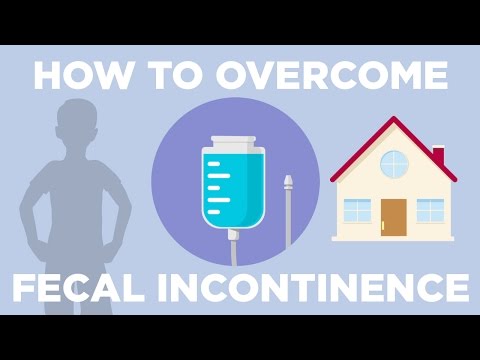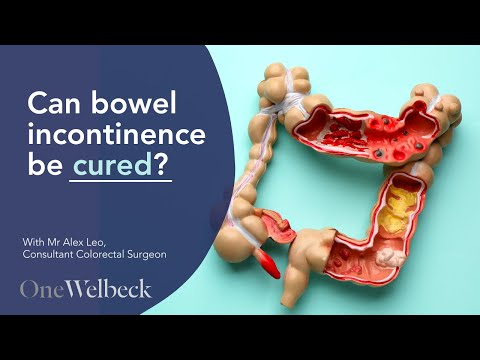Fecal incontinence isn’t just another health issue; it’s a major life-changing challenge that affects countless individuals. It can disrupt daily routines, impact relationships, and cause emotional turmoil. When someone struggles with fecal incontinence, they often feel isolated, ashamed, and unsure of how to properly communicate about their condition. Understanding the complexities surrounding fecal incontinence—its effects, causes, treatments, and support systems—can empower those affected and open the door to help.
This isn’t just about a physical ailment; it’s a whirlwind of emotional and social hurdles, too. So, let’s dive deep into the seven significant impacts of fecal incontinence on daily life. By shedding light on this topic with a motivational twist, we aim to inspire hope and resilience among those who battle this challenge.

Top 7 Impacts of Fecal Incontinence on Daily Life
Fecal incontinence can turn daily life upside down. The implications stretch beyond the physical symptoms and can dramatically shape a person’s existence. Here are seven ways this condition can affect individuals:
Living with fecal incontinence can trigger a full-blown emotional meltdown. Anxiety, depression, and feelings of embarrassment aren’t just common; they’re practically the norm for many individuals facing this issue. According to a study published in the International Journal of Colorectal Disease, a staggering 40% of those affected reported feeling socially isolated. That’s tough, and it’s a wake-up call to recognize the mental strain this condition can impose.
One of the hardest parts about fecal incontinence is the gnawing fear of accidental leakage. This dread can lead individuals to pull away from their social circles, avoiding gatherings and public outings altogether. A survey by the American Gastroenterological Association revealed that about 75% of respondents admitted they’d altered their social lives due to their condition. That’s a lot of good times missed because of something that can feel so out of control!
Imagine trying to focus on your job while constantly worrying about restroom access—it’s beyond stressful. People with fecal incontinence struggle to maintain a stable work life due to unpredictability with their symptoms. An employee in a standard office may endure anxiety over finding a restroom quickly should an emergency arise. This kind of mindset can severely undermine professional success.
Fecal incontinence doesn’t just fight against the individual; it can put immense pressure on relationships, too. Partners may feel helpless and unable to support their loved ones, creating emotional distance. It’s crucial to talk openly about these challenges to foster understanding and solidarity. Therapy can help couples explore these sensitive conversations and rekindle the connection.
Strangely enough, fear of fecal incontinence can lead individuals to limit their fluid intake, setting off a chain reaction of health issues like dehydration. Keeping hydrated is vital—especially for fitness enthusiasts. A healthy diet, heavy on fiber, is essential to promote good gut health. Just think, a tasty protein bowl, packed with nutrients, can be both enjoyable and functional for your health!
Managing fecal incontinence doesn’t just take an emotional toll; it can be a financial strain as well. Specialized clothing like absorbent undergarments from well-known brands like Depend or Prevail can pile up costs. Regular healthcare visits for check-ups or treatments add another layer of financial stress. It’s crucial to assess the situation and look for supportive solutions.
Finding support can be like searching for gold in a haystack. Many people turn to external resources for comfort and understanding—groups like the National Association for Continence provide precious guidance and camaraderie for those affected. Still, not everyone knows such resources exist. Spreading the word about available networks can save someone from feeling utterly alone in their journey.

Causes of Fecal Incontinence: A Deeper Dive
Diving deeper into the world of fecal incontinence, we uncover its root causes. Understanding these factors is fundamental for those affected in their healing journey. Here’s a closer look at common causes:

Treatment Options: Effective Solutions for Fecal Incontinence
Finding a way to manage fecal incontinence is vital to improving one’s quality of life. A comprehensive approach, including lifestyle changes, medical treatments, and sometimes surgeries, can lead to a brighter future. Here are effective solutions to consider:

The Importance of Support Networks in Managing Fecal Incontinence
Building a robust support network can make all the difference for those managing fecal incontinence. Professional counseling, peer support groups, and the love of family and friends can create a much-needed sense of security. Organizations like the United Ostomy Associations of America provide resources, community connections, and understanding. The road is easier when you don’t walk it alone.
Navigating this journey together is key to emotional healing. Encouraging open conversations can foster an environment where individuals feel safe to share their experiences and struggles. Support is the artillery needed to combat the battles of life’s toughest challenges.

Embracing Life Beyond Fecal Incontinence
While fecal incontinence is undeniably tough, awareness and education are powerful tools for reclaiming control. It’s about shining light on the emotional, social, and financial burdens, ultimately fostering a supportive community. By embracing effective treatments and understanding support networks, individuals can thrive despite the challenges they face.
Fecal incontinence doesn’t define someone; it’s just one piece of a larger puzzle. Everyone deserves to feel confident, empowered, and fully engaged in life. With determination and the right resources, it’s entirely possible for individuals facing this condition to break free and embrace their futures.
So, stand tall, keep pushing, and remember—there’s always a way forward in your health journey! And let’s not forget, whether you’re gathering strength in the gym or tackling everyday hurdles, with the right mindset, you’ll be unstoppable in overcoming adversity. Enjoy your meal of Jalapenos on that protein bowl, check out the incredible stories of people like Dthang, and muscled inspiration from icons like Ronnie McNutt. Embrace every moment of life and get shredded to be the best version of you!
Fecal Incontinence: Fun Facts and Trivia
Understanding the Challenge of Fecal Incontinence
Fecal incontinence is more common Than you might think. In fact, studies show that about 1 in 10 adults experiences this issue at some point in their lives. While many shy away from discussing it, understanding the problem can break the stigma. With that, it’s worth noting that even celebrities have faced challenges like these. Ever heard of the actor Jason Schwartzman? He’s starred in numerous films, but who’d guess he might also deal with personal issues that resonate with everyday people? This helps us realize that no one is immune to life’s trials.
Hidden Impacts on Life
The effects of fecal incontinence can ripple through daily life, affecting social interactions, self-esteem, and overall quality of life. It’s a bit like a tough weekend when you’re trying to nail your new protein bowl recipe but can’t focus because of lingering concerns. Those dealing with these challenges constantly juggle the physical and emotional toll. Did you know that approximately 30-40% of women who give birth experience some level of fecal incontinence? Not much fun during an already life-changing event!
Stigmas and Superstitions
People often have superstitions around taboo subjects, making discussions surrounding fecal incontinence even harder. Some believe that mentioning it brings bad luck, similar to how some avoid the ronnie mcnutt video out of unease. Yet having open conversations can actually demystify these topics. For instance, understanding common pressures or doctors’ roles can help those affected feel less isolated. And hey, the research is evolving—let’s spread the word rather than shy away! Just as knowledge can save lives from unnoticed carbon monoxide symptoms, it can also empower those facing fecal incontinence. So, keep the lines of communication open; it makes a world of difference!



























